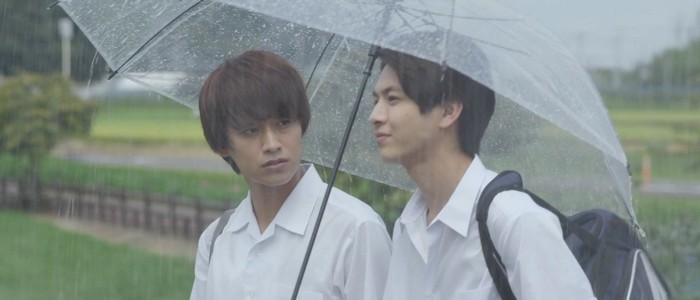
Eternal Yesterday is a Japanese BL series about two high school students who experience a heartbreaking tragedy. The protagonist used to be a loner until his cheerful classmate befriends him. Despite their opposite personalities, they form a close bond and cultivate a secret attraction. On an ordinary morning, they are walking to school. A devastating event suddenly occurs, changing their lives forever.
Every aspect of Eternal Yesterday is masterful, from the sensitive romance to the emotive acting. The beautifully poignant story uses a creative way to express profound messages about grief. The haunting tale of love and woe makes me want to cry after each powerful episode. I champion this sentimental and sophisticated series, which has outclassed most of the other dramas in the BL genre.
Eternal Yesterday Summary
Title:
永遠の昨日
Series Info:
Japan (2022)
Genre:
High school romance
About:
Eternal Yesterday is a sad & emotional BL drama.
Plot
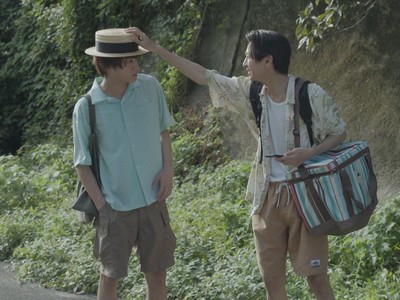
Mitsuru Oumi is a quiet teenager who keeps to himself. He is used to being lonely all his life. Although Mitsuru is an excellent student, he has no friends and doesn't socialize with others at school. At home, he is often alone. His father is a busy hospital director, always preoccupied with work. They have an emotionally distant parent-child relationship.
On a rainy day, Mitsuru stands outside the school entrance by himself. He is waiting for the weather to clear up. Just then, his classmate Koichi Yamada arrives with a group of friends. They stand beside Mitsuru, chatting among themselves. Mitsuru and Koichi have never interacted, even though they are in the same class. The two teenage boys glance at each other curiously. Their gazes meet, and they lock eyes for a while. A sense of self-consciousness crosses both their faces.
For the next two weeks, Mitsuru and Koichi continue sneaking quick glances at each other. Koichi is a popular figure in class due to his cheerful personality, so he's always surrounded by friends. In contrast, Mitsuru spends his lunch breaks alone. One day, Koichi gathers his courage and initiates the first conversation with Mitsuru. Koichi asks if they can be friends. Mitsuru gives a cold, standoffish response. Nonetheless, the two teens begin eating lunch together. They don't talk much at first. Eventually, they break the ice as the conversations flow between them.
Mitsuru and Koichi become friendlier over time. They start walking home together before and after school. Koichi must arrive at school early due to basketball practices, but Mitsuru still accompanies him anyway. The two teens also meet frequently as Mitsuru tutors Koichi. Sometimes, they'd hang out at Koichi's home, surrounded by his rowdy young siblings and loving family. Mitsuru enjoys the warm, inviting atmosphere in his friend's home. Eventually, Mitsuru becomes more sociable and befriends other classmates, thanks to Koichi's positive influence.
On an ordinary morning, Mitsuru and Koichi walk to school together like usual. It is raining, so the two boys share an umbrella. As they chit-chat, Koichi is in good spirits and cracks a joke. Suddenly, without warning, tragedy strikes in a flash of an eye. The catastrophe happens so quickly that it takes a while for Mitsuru to realize what happened. He stands in the rain, completely stunned. On this fateful day that changes Mitsuru's life, he discovers Koichi is no longer by his side.
Eternal Yesterday Cast
Characters
Mitsuru
Sora Inoue (井上想良)
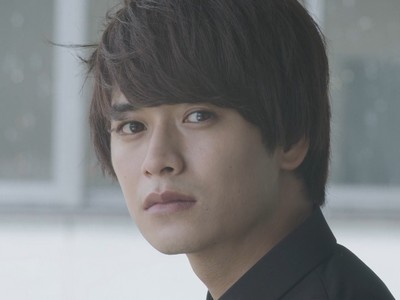
Mitsuru is a quiet, scholarly teenager who doesn't have friends in school. His father is a hospital director, but they don't have a close relationship. Mitsuru has a sullen attitude, masking his emotions behind a brooding demeanour. He is drawn to Koichi despite their opposite personalities.
Sora Inoue

Sora Inoue (井上想良) is a Japanese actor. He is born on August 12, 1998. His first BL project is a supporting role in the 2022 series, The 8.2 Second Rule. Later that year, Sora stars in the 2022 drama, Eternal Yesterday.
Koichi
Rio Komiya (小宮璃央)
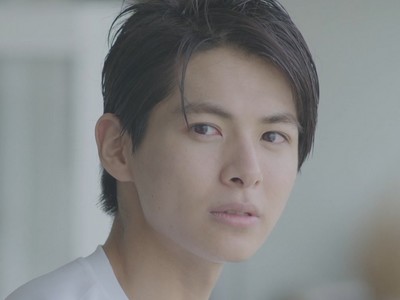
Koichi is a cheerful and energetic high school student. He is Mitsuru's classmate, although they have never interacted. Unlike Mitsuru, Koichi is popular on campus and has many friends. Koichi comes from a loving family with two rowdy younger siblings.
Rio Komiya
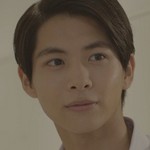
Rio Komiya (小宮璃央) is a Japanese actor. He is born on November 19, 2002. His first BL project is a supporting role in the 2022 series, Takara-kun and Amagi-kun. Later that year, Rio stars in the 2022 series Eternal Yesterday and the movie Grand Guignol.
Supporting Cast

Kagamiya
Karen Otomo (大友花恋)

Class President
Taisuke Niihara (新原泰佑)
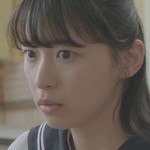
Hashimoto
Yui Narumi (鳴海唯)

Kogawa
Yuichi Nakamura (中村優一)
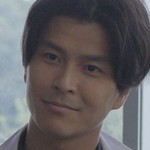
Tamaki
Daichi Asai (朝井大智)
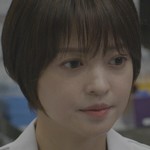
Kasumi
Ryoko Kobayashi (小林涼子)
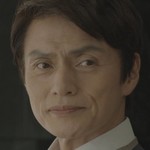
Mitsuru's dad
Yuki Matsumura (松村雄基)
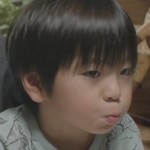
Minato
Yoshimoto Nagisa (吉本凪沙)
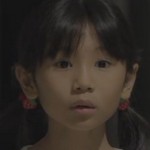
Nagisa
Noa Tanaka (田中乃愛)

Koichi's mom
Rie Kitahara (北原里英)
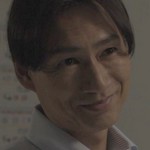
Koichi's dad
Yoshihisa Ishida (石田佳央)
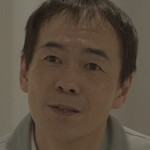
Driver
Tomonori Mizuno (水野智則)
Cast Highlights
- Mitsuru's actor (Sora Inoue) had a supporting part in the 2022 high school BL drama The 8.2 Second Rule. He appears in the second episode.
- Koichi's actor (Rio Komiya) had a supporting role in the 2022 high school BL series Takara-kun and Amagi-kun. In addition, he appears in the 2022 movie Grand Guignol.
- The actor who portrays the Class President (Taisuke Niihara) is the lead of the 2024 drama At 25:00 in Akasaka. He also has a supporting role in the 2022 BL comedy Senpai, This Can't Be Love!
- The actor who portrays Kogawa (Yuichi Nakamura) has a supporting role in the 2024 series Cosmetic Playlover.
Eternal Yesterday Review
Review
Drama Review Score: 9.9
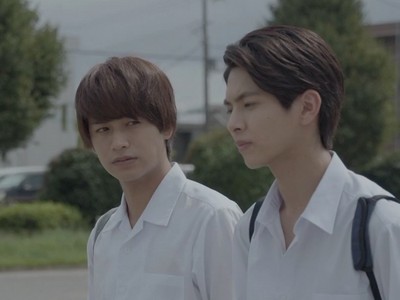
I write this review with goosebumps in my arms because Eternal Yesterday is such an epic BL drama. The powerful story, the poignant romance, and the profound messages still resonate vividly in my thoughts. Its excellence doesn't surprise me because this series exuded many positive signals before it even began. I was drawn to the mysterious premise, handsome cast, beautiful theme song, and melancholic vibe. From my years of watching BL, a gut instinct told me Eternal Yesterday showed immense promise.
The memorable first episode reassured me that my intuition was correct. Eternal Yesterday begins with a devastating tragedy that sets the sombre tone for the rest of the series. My heart tightens after the opening scene, and these emotions intensify throughout an exhilarating journey. The second episode introduces an innovative twist, adding complexity and creativity to the narrative. As the plot develops, I'm astonished by the story's imagination, thoughtfulness, and brilliance. Propelled by constant momentum, Eternal Yesterday remains captivating from start to finish.
Eternal Yesterday is a depressing love story due to the imminent dread and doom. The sympathetic leads face hardships that seem impossible to overcome. Even in the hopeful moments, I can't shake away the foreboding gloom at the back of my mind. Each heartbreaking episode makes me want to cry and wish for a miracle. Yet, this sophisticated BL drama inspires various emotions that mix with sorrow. I may feel enthralled with a romantic scene, surprised by a plot twist, or amused by a playful joke. Often, the gentle humour causes me to laugh through my tears.
The success of Eternal Yesterday rests in its masterfully conveyed teen romance. Mitsuru and Koichi make an iconic BL couple whose love persists through hellish conditions. Despite their youth, this elegant love story feels incredibly mature, defined by delicate sensitivity and thoughtful introspection. Their relationship packs so much substance, sexual tension, and symbolism in just eight half-hour episodes. If I must nitpick, the series should flesh out the early stages of the attraction even more. Regardless, I'm mesmerized by the exquisite showcase of passion and devotion.
Eternal Yesterday casts telegenic leads who portray their characters with poise and tenderness. Koichi's actor (Rio Komiya) stands out due to his handsome looks. He amplifies his attractiveness with cheerful expressions, bubbly enthusiasm, and affable charm. His costar (Sora Inoue) is suitable as the moody protagonist, revealing a fragility behind his brooding demeanour. His expressive eyes can convey torment, outrage, or wistfulness authentically. In addition, Eternal Yesterday has a majestic soundtrack. The opening and ending songs enrich the forlorn atmosphere.
Unsurprisingly, Eternal Yesterday has a sad ending, which shatters my heart into a million pieces. Yet, I appreciate the meaningful conclusion that expresses touching sentiments about trauma and loss. By the way, the last few minutes have officially broken me. I need time to heal from this finale, yet I want to rewatch the series immediately to absorb the beauty. Overall, Eternal Yesterday is a prestigious tale of love and woe. The masterful story encapsulates every aspect I cherish in BL. It has outclassed many other dramas in this genre, becoming one of my all-time favourites.
Summary
Emotional story
Eternal Yesterday uses a brilliant storytelling device to express profound themes about trauma and loss. Every powerful episode makes me want to cry, contemplate, and feel vivid emotions.
Sensitive romance
The series portrays a tragic teen romance with thoughtful introspection and delicate sensitivity. The mature relationship is packed with substance, symbolism, and sexual tension.
Poised acting
The telegenic leads portray their roles with poise. Mitsuru's actor (Sora Inoue) gives a nuanced performance behind his brooding demeanour. His costar (Rio Komiya) exudes charm and perkiness.
Sad ending
Eternal Yesterday has a sad ending as the protagonists come to terms with their sorrowful fates. The finale contains powerful messages about the lingering effects of grief.
Elegant artistry
The series achieves a sombre vibe with faded colours, dim lighting, and a moody ambiance. In addition, it has a majestic soundtrack. The opening and ending songs accentuate the melancholy.
99%
Eternal Yesterday is an emotional BL series examining the aftermath of tragedy. This masterpiece showcases a sensitive romance, powerful acting, complex themes, and heartbreaking sorrow.
Eternal Yesterday Series Explained
Analysis
- Accident
- Living corpse
- Koichi & Mitsuru
- Mitsuru's crush
- Mitsuru's sadness
- Koichi's outburst
- Confession
- Mountain and sea
- Coldness
- Warmth
- Fever
- Suicide
- Number one
- Youth
- Transparency
- Mourning
- Yesterday
- Tomorrow
Accident
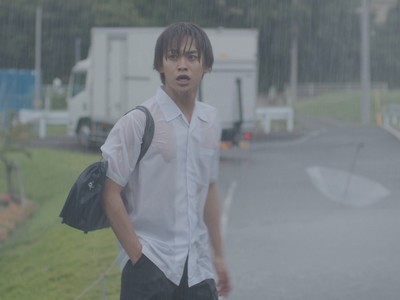
It was supposed to be an ordinary morning for Koichi Yamada. He followed his regular routine, going to school early to attend basketball practice. As usual, Mitsuru kept him company on this journey. Even though the weather was rainy and gloomy, Koichi remained in good spirits because he got to spend time with his favourite person. Koichi chatted, laughed, and joked around in his usual carefree style.
And then, the truck came.
Instinctively, Koichi pushed Mitsuru out of harm's way. As the speeding vehicle charged toward the pair, Koichi had less than one second of reaction time. He used it to ensure his beloved companion was safe. His final moment before perishing in a horrible death was protecting Mitchan. Earlier, the two teens had a casual conversation about why Koichi always walked on the left side. Unfortunately, Koichi demonstrated the reason with his life. He had deliberately positioned himself this way to shield Mitsuru from oncoming traffic.
The haunting aspect of Eternal Yesterday's story is it thrusts the ordinary protagonists into extraordinary tragedy. Nobody expects to get killed so suddenly and horribly on their way to school. Poor Koichi died for being in the wrong place at the wrong moment. On any other day, he would've finished his journey safely. Although Koichi suffers the worst consequences, we can't overlook the degree of Mitsuru's trauma. He watched his loved one get brutally killed and reduced to a distorted corpse. Oh my god, how awful! Koichi and Mitsuru don't deserve these cruel fates!
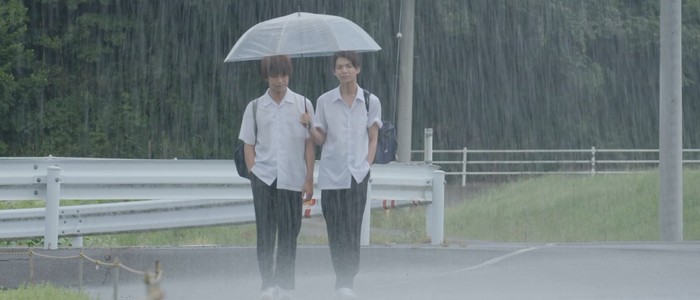
Living corpse
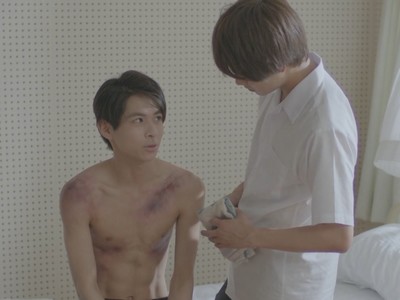
Episode 1 concludes with a harrowing scene. Mitsuru stands over Koichi's dead body and states, "In a flash of an eye, Koichi became a corpse." Ooh, this line sends shivers down my spine! Koichi's lifelessness stands out because he used to be full of life before his death. His cheerful disposition and warm personality radiated at every moment. Yet, all that positive energy disappeared after the accident. What's left of him is a cold corpse devoid of vitality.
But wait, he's alive! Or at least he's partially alive. Episode 2 introduces a quirky supernatural twist by resurrecting Koichi from the dead. However, it isn't because he survives his deadly injuries. Instead, he's stuck in this weird limbo between life and death. Although Koichi restores consciousness, he doesn't regain all his human qualities. He can't feel pain, he loses his appetite, and he never goes to sleep. Yet, Koichi still retains his thoughts, feelings, and desires. He isn't like a mindless zombie. Koichi maintains his mental clarity throughout the story.
Poor Koichi struggles between his humanity and abnormalities. He's a conscious human trapped inside a decaying corpse's body. Some characters fear him because they only focus on his spooky aspects, like his bruises or lack of heartbeat. "Aren't you scared of him?" Dr. Kasumi once asked. Even Koichi feels insecure about his inhuman attributes and finds himself creepy. Yet, Mitsuru can see past the zombielike qualities and realize the inner Koichi is still the same. Mitsuru never becomes afraid because he recognizes his companion as a human instead of a monster.
Koichi and Mitsuru
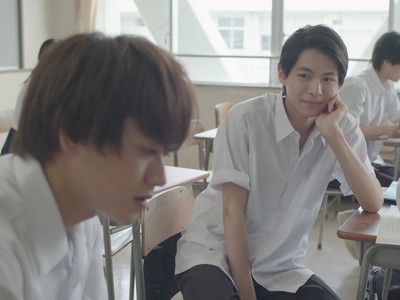
Mitsuru is devoted to Koichi. During this stressful ordeal, Mitsuru displays unconditional love. He stands by his man in sickness and in health. It would've been so easy to drop Koichi at the hospital and let the authorities deal with him. Yet, Mitsuru shoulders his companion's burdens and rarely leaves his side. Sometimes, Mitsuru is even angrier or more upset than Koichi over the circumstances. Koichi's struggles become his pain too.
Mitsuru's loyalty comes from their emotional bond. As he says in Episode 3, Koichi is special to him, like a pivotal figure in his life. For starters, Koichi is Mitsuru's first friend. Before they met, Mitsuru was a lonely guy with no buddies. Unlike others, Koichi reaches out to his shy classmate. He puts up with Mitsuru's standoffish personality and sits through awkward lunches. Koichi also protects his friend from bullies, gives compliments, and invites him to hang out. Although Mitsuru doesn't express direct gratitude, he's moved by how much Koichi dotes on him when nobody else would.
I love how Mitsuru describes Koichi's impact on him. "Ever since I was a kid, I've been creating a wall. Koichi built a door with no lock, but I didn't feel anxious about it. He always stood in front of this door." The metaphor depicts their dynamic astutely. Mitsuru never overcomes his emotional reservedness. Yet, Koichi makes a "door" and welcomes Mitsuru to step out of his defences whenever he's ready. Without Koichi, this introvert may have never forged human connections. Mitsuru's friend helps him become less closed off. Koichi inspires positive changes in Mitsuru.
Mitsuru's crush
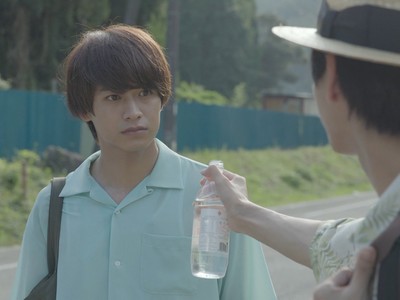
Beyond their friendship, Koichi is also Mitsuru's first love. Their mutual attraction is beautifully conveyed during the encounter outside the school entrance. This romance begins with a stolen glance between two teenagers. The lingering gazes, delicate expressions, soft soundtrack, and sensitive ambiance tell us everything we need to know about their infatuation. Mitsuru's feelings strengthen as he gets to know Koichi better, cherishing his companion's positivity and kindness.
In Episode 3, Mitsuru's attraction reaches a boiling point. He has fallen for Koichi and sees him as more than just a friend. During their camping trip, Mitsuru's thoughts are preoccupied with his crush. This lovestruck teen is so smitten that he sees a water bottle and associates it with the touch of Koichi's lips. When Koichi offers him a drink, Mitsuru deadpans in his narration: "I desperately pretend not to feel elated." Mitsuru shakes his head timidly at the water bottle. Deep down, he reacts with vivid emotions like desperation and elation beneath his stoic demeanour.
Yet, Mitsuru doesn't believe Koichi reciprocates his feelings. The water bottle becomes a symbol of his unattainable love. When Mitsuru tries drinking from it, he imagines Koichi snatching the beverage and turning him down. "Sorry Micchan, but I can't be that way for you." Mitsuru anticipates a swift rejection from this presumably straight guy. In addition, Mitsuru worries a failed confession would jeopardize their close bond, which he values dearly. "I don't want to lose the first friend I ever made." Mitsuru chooses to internalize his attraction, even though it agonizes him.
Mitsuru's sadness
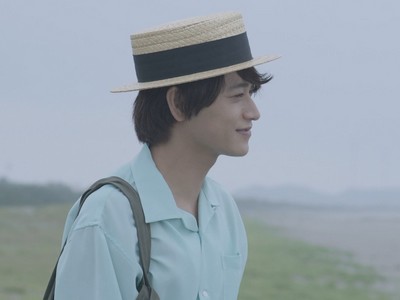
The two teens arrive at the sea. Koichi bursts with enthusiasm as he runs into the water. He reacts cheerfully, and his boisterous energy evokes a rare smile from Mitsuru. Look Micchan, a jellyfish! Yet, Mitsuru's joy quickly disappears, replaced by an overpowering despair. Mitsuru won't allow himself to enjoy this simple moment of happiness. We hear his inner monologue: "I'm a man who likes other men. And when I realized I saw Koichi that way, I felt depressed. I felt guilty toward Koichi, who seemed so carefree."
Mitsuru is self-conscious about being gay. When contemplating his love confession, he uses non-romantic language like "the rights of minorities" or "open-minded". These concerns wouldn't exist if he were a guy with a crush on a girl. Mitsuru acknowledges his same-sex attraction brings a unique set of challenges that heterosexual couples wouldn't face. Mitsuru's sexuality adds another source of doubt to his feelings for Koichi. He doesn't believe Koichi is homophobic. Yet, Mitsuru thinks he faces a higher chance of rejection because his friend is likely straight.
Mitsuru experiences many conflicting emotions. He enjoys being around Koichi, a beacon of joy who makes him happy. At the same time, Mitsuru is miserable as he pines over his unrequited love. Furthermore, he feels guilty about lusting after his friend. When Koichi strips, Mitsuru stares for a moment before averting his gaze out of shame. In contrast, Koichi acts totally carefree. His relaxed demeanour creates a striking juxtaposition with Mitsuru's solemn monologue. As Koichi frolics merrily in the sea, Mitsuru is drowning in turmoil.
Koichi's outburst
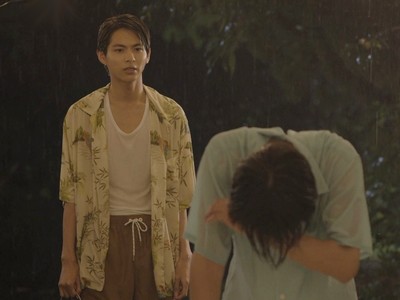
You may have noticed Koichi's overeagerness throughout the camping trip. He's extra chatty, brings tons of food, and prepares an itinerary of fun activities. Hey Micchan, let's do fireworks! Koichi puts in the effort for a special day together, but the rain ruins his expectations. His disappointment is magnified because Mitsuru appears in a foul mood. The audience knows Mitsuru sulks because of his unrequited love. Yet, Koichi interprets it differently and believes his friend resents him.
While Mitsuru's coping mechanism is retreating emotionally, Koichi responds by hiding his struggles behind an energetic façade. Beneath a bubbly persona, Koichi frets over his romantic feelings for Mitsuru. One of his concerns is that their relationship seems nonreciprocal. Since the beginning, Koichi has taken most of the initiative to bring them closer in this friendship. He grows insecure that his fondness for Mitsuru is one-sided. Mitsuru acts so aloof, giving hazy signals about whether he enjoys Koichi's companionship.
"It's always just me!" Koichi vents angrily. His outburst is shocking because we've never seen him lose his cool until now. However, Koichi's anger isn't spur-of-the-moment. Koichi has stewed over these negative thoughts and internalized his frustrations for a while. He suffers from unrequited love, just like Mitsuru. The cause of his misery comes from not knowing how Mitsuru feels. Does he see me as a friend, a love interest, or a nuisance? Sometimes, he opens up to me. Other times, he pushes me away. Koichi is distressed by their ambiguous relationship.
Confession
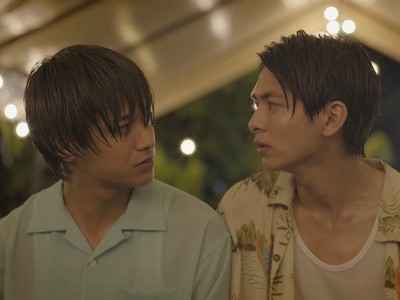
Koichi lashes out at Mitsuru, unleashing all his pent-up tension, "Just say you don't want it! Stop acting annoyed with me! If you say no, I'll back off!" Koichi refers to Mitsuru's displeasure toward their camping trip and recreational outings. However, he also speaks in the larger context of their relationship dynamic. Koichi gives so much attention to Mitsuru and receives so little in return. Koichi thinks he's imposing his desires onto an unreceptive partner. He implies, If you don't love me, let me know so I can stop pursuing you.
Koichi's intense outburst is unlike any behaviour we've seen from him in the past. We know him as the carefree boy who looks at Mitsuru with fond eyes and flashes sheepish smiles. Yet, infatuation is a destructive emotion that causes Koichi to go against his gentle nature. Likewise, Mitsuru's tears are an uncharacteristic response from the stoic teenager. Mitsuru breaks down, exposing complete vulnerability for the first time. Both leads are confused, frustrated, and distressed by their unrequited love. They can't control their emotions around each other anymore.
As painful as this moment may be, it provides a necessary breakthrough in Koichi and Mitsuru's relationship. Finally, both are honest instead of internalizing their turmoil. Koichi and Mitsuru discover their love isn't so unrequited after all. They feel the same way and just need to communicate their mutual attraction. The leads share a tender first kiss, a symbolic affirmation of their feelings. The episode ends with them laughing in relief. Their psychological burdens have been lifted, allowing them to gain clarity and love each other confidently.
Mountain and sea
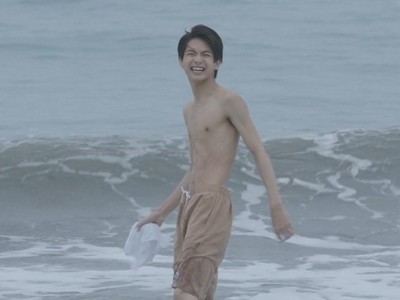
Koichi and Mitsuru's relationship is a tale of two opposites. They come from different backgrounds. Koichi is raised in a loving household, surrounded by parents, siblings, and family warmth. In contrast, Mitsuru grows up in a cold, lonely home, neglected by his strict, absentee guardians. Their upbringings reflect in their personalities, which don't share much in common. You wouldn't expect this cheerful guy and his gloomy companion to mesh well together. Yet, they fall in love despite their discrepancies.
The characters' differences are highlighted in their names. Koichi Yamada (山田浩一) contains the symbol for hill (山), while Mitsuru Oumi (青海満) includes the word for the ocean (海). The mountain and the sea intersect in harmony despite their naturally distinct attributes. In Episode 3, the leads ask whether they prefer the mountains or the beach. Interestingly, their replies go against their names. Mitsuru likes the hills, whereas Koichi enjoys the sea. The two boyfriends pick the answer that contains a bit of each other.
During their first chat, Koichi seems discontent with his name, describing it as "ordinary". It carries into how he perceives himself, an unremarkable guy not unique enough to be anyone's number one. Meanwhile, Mitsuru is averse to his namesake, the ocean. We never see him go swimming with Koichi. Mitsuru relates to the rigidity of the mountains than the fluidity of the sea. After meeting, Koichi and Mitsuru inspire each other to embrace themselves more. Koichi learns he can be special to his beloved. Likewise, Mitsuru becomes emotionally fluid than stiff and rigid.
Coldness
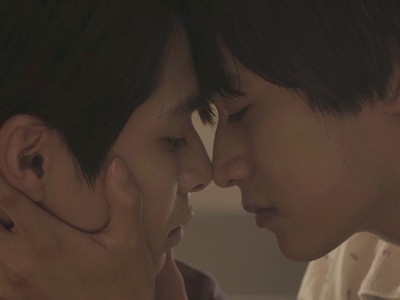
After dying, Koichi undergoes a physical transformation. His skin loses complexion, the colour drains from his lips, and his injured body is covered in bruises. His grisly appearance resembles the walking dead. Furthermore, there are multiple references to Koichi's cold temperature. He lacks the natural warmth that emits from a living human's body. When anyone touches him, he feels as frigid as a corpse.
Koichi's emotional state imitates his physical deterioration. He becomes increasingly bleak and hopeless about his condition. In contrast, Mitsuru is burning with fiery passion and insists his partner isn't dead. Yet, Koichi doesn't believe it anymore. His willpower is dying, just like the rest of him. The fire inside Koichi shrinks as he comes to terms with impending doom. Koichi makes disturbing remarks about how his time is up and literally refers to himself as a corpse. Can you imagine how diminished your self-worth must be to identify as a corpse!? Koichi's comments feel chilling to the bone.
Yet, Mitsuru doesn't give up. The less hopeful Koichi feels, the more passionate his boyfriend becomes. Mitsuru's fire grows to compensate for the two of them. In Episode 4, Mitsuru initiates their bedroom kiss to reassure Koichi of his humanity. He narrates during the kiss: "Koichi's lips were incredibly cold. I wanted to give him some of my warmth." Oh, this line sounds so lyrical that you know Eternal Yesterday's source material must come from a book. Despite the grim situation, Mitsuru's love for Koichi burns brightly. Mitsuru wants to comfort his boyfriend and reignite his hope.
Warmth
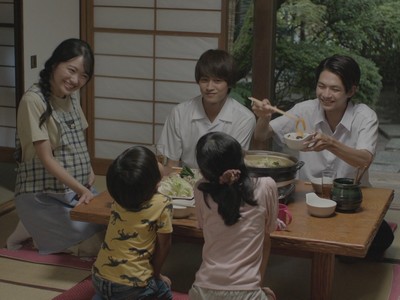
Mitsuru is not a naturally warm person. He makes an exception for Koichi out of love. However, his nature is to isolate himself and remain emotionally reserved. Mitsuru's cold, aloof personality comes from his upbringing. His mom is strict and unaffectionate. Likewise, his dad maintains distance and buries himself into work. As Mitsuru spends his days in that big, empty house, it feels more like a crematorium than a loving home.
Mitsuru never experiences warmth until Koichi introduces him to the concept. Unlike his boyfriend, Koichi is surrounded by family affection. He's so comfortable around his lively siblings and supportive parents. Koichi's adoptive status or age difference never factors into the close bonds with his family. Koichi invites Mitsuru to his home, welcoming him into this warm, relaxed environment. They all call him Micchan, even the parents, an endearing nickname that shows their fondness for him. As Mitsuru spends time with Koichi's family, his cold demeanour starts to defrost.
Thanks to Koichi's positive influence, Mitsuru becomes more emotional and expressive. His boyfriend ignites a fire in Mitsuru's cold soul, filling him with compassion. Unfortunately, Koichi seems resigned to his fate. However, he doesn't want Mitsuru's fire to extinguish after his death. It weighs on Koichi's mind Mitsuru may return to a cold, despondent lifestyle without his presence. That's why Koichi subtly pushes his boyfriend to reconcile with his father. He makes affirmative statements about Mitsuru's dad for a reason. Koichi hopes Mitsuru can find a new source of warmth.
Fever
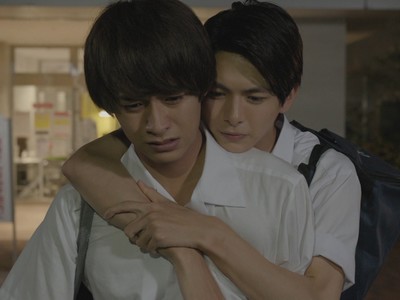
As Koichi's health worsens, Mitsuru becomes aware of his helplessness. Mitsuru may deny it all he wants, but the truth is that Koichi cannot be saved. Doctors, psychics, and prayers won't prevent his boyfriend's inevitable passing. Koichi has accepted his doomed fate for a while. However, Mitsuru struggles to find peace with the uncontrollable circumstances. Mitsuru doesn't want to admit defeat, but he can't think of a solution to extend Koichi's life.
Mitsuru's mood turns unstable. He erupts like an emotional volcano, lashing out at everyone around him. Mitsuru snaps at his classmates and grows agitated around strangers. His fury intensifies after encountering the man who killed Koichi. The story doesn't demonize the careless truck driver, who is apologetic and has sympathetic circumstances. Yet, Mitsuru cannot forgive the antagonist who ended Koichi's life. "I'll punish him!" Mitsuru warns with deadly intent. Koichi must draw his boyfriend away before the confrontation escalates.
Mitsuru used to have a problem with being stoic and unexpressive. Now, he's overflowing with too much emotion. His intense feelings boil into a debilitating rage. "You're mad enough for the both of us," Koichi jokes. Secretly, he worries that Mitsuru is consumed by anger and vengeance. Koichi doesn't want his boyfriend to continue on this destructive warpath. Mitsuru's fever at the end of the episode is a metaphor, indicating how you can become sick with fervent passion. Mitsuru isn't exuding warmth anymore. His temperature is so scalding hot that it seems dangerous.
Suicide
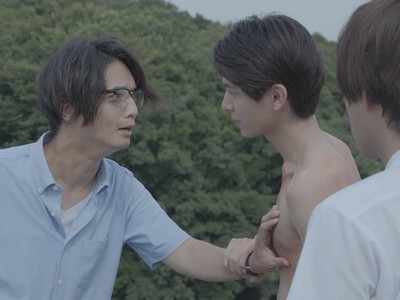
Mitsuru's emotional instability makes you fear he may be a danger to himself or others. The grief of losing a loved one pushes some people to extreme measures. One of the possible reactions is suicide. In Episode 5, Mitsuru's teacher Kogawa contemplates ending his life after a breakup with his boyfriend. Although not identical, his situation has parallels with Mitsuru's trauma. Both suffer from heartbreak as their loved ones leave them suddenly.
A breakup and a death are not on the same level. However, the affected victims go through similar stages of grieving. Kogawa's shock, confusion, depression, desperation, and destructiveness are common experiences. His character provides a cautionary tale for Mitsuru, warning him that might be how he behaves after losing Koichi. Driven by a broken heart, some believe suicide will end their agony. Yet, Koichi and Mitsuru unambiguously oppose this option. Both leads are united in their stance and don't support taking your own life as a coping mechanism for grief.
Koichi and Mitsuru rationalize that a suicide attempt may not cease your suffering. They successfully talk the teacher down the ledge. Off-screen, Kogawa takes a healthier approach to grieving and gets a fresh start elsewhere. This subplot reassures the viewers that Mitsuru will not end his life after Koichi's death. Thankfully, he doesn't follow his deceased lover to the pearly gates. Although Mitsuru is overemotional about Koichi, he never loses his will to live. His mental fever cools down, indicating he can keep his feelings in check and think clearly about the future.
Number one
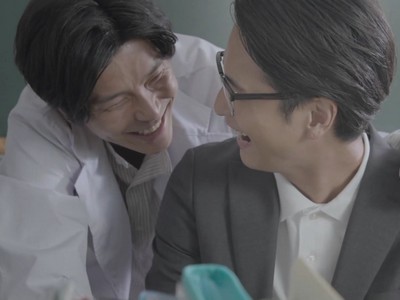
Kogawa's ex-boyfriend Tamaki is also suffering from grief. He cannot move on from a deceased lover in his youth. "Almost twenty years have passed, but I still catch myself searching for him." Tamaki provides another cautionary tale for Mitsuru, warning that time may not heal all wounds. After Koichi's death, Mitsuru may turn into Tamaki, incapable of committing to a new stable relationship. Decades later, he remains in mourning and seems paralyzed by the past.
Tamaki breaks up with Kogawa for not being his "number one". It's a familiar phrase because Koichi and Mitsuru use the same term during their love confession. When the leads confirm they are each other's number one, the sentiment seems romantic initially. You're my top person, my favourite, and my most valuable. You emphasize the importance of your significant other with this esteemed title. However, what happens if your number one passes away? Are you destined to be alone because your number one is irreplaceable?
Koichi proposes a creative compromise. It's a tie! You can have two number ones in your life, sharing the same importance and value as the other. Even if your old partner passes away, don't think of your new companion as better or worse. You can appreciate both equally without comparing your love. Of course, Koichi's theory is easier said than done. Mitsuru disagrees about its feasibility. The number is one for a reason, not one plus one. Ultimately, Mitsuru ends the series without another number one. There's no tie. Koichi is the undisputed winner of his love.
Youth
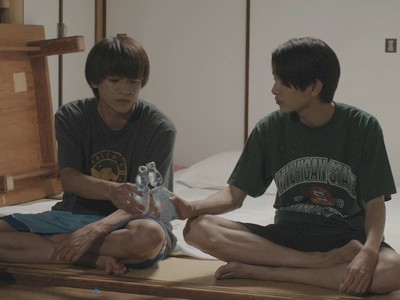
The concept of time emerges prominently in the later episodes. Koichi notes he's running out of time in the mortal world. An invisible biological clock counts down the remaining moments as he reaches the deadline for his life. Koichi looks ahead and doesn't see a future for himself. Each scene becomes heartbreaking once you recognize the finality of his last few days. It's the last time Koichi can see his friends, talk to his family, and relax with his boyfriend.
Koichi's fate feels tragic because of his untimely death. Most people do not die during their teenage years. They get to enjoy full-length lives, achieving a lifetime of aspirations. Sadly, Koichi won't get a taste of many mature experiences. In Episode 5, the leads drink marble soda, a fizzy beverage often associated with adolescence. Koichi asks quietly, "If we were adults, would we be toasting with beer right now?" It's a subtle reminder that he'll never try alcohol, a classic emblem of adulthood. This teenager can't transition from sodas to beers due to his short lifespan.
Eternal Yesterday is a sad love story about a dead boyfriend. However, the series also illustrates other forms of loss. It touches upon how the world loses a precious friend, a devoted brother, and a dear son. It also highlights how this youth loses a bright, promising future when his life is tragically cut short. Before the accident, Koichi assumed he had infinite time to form memories, fulfill dreams, and find happiness. Suddenly, he has less than several days to make his final mark in the world. Koichi deserves more time to enjoy life, yet his journey ends right now.
Transparency
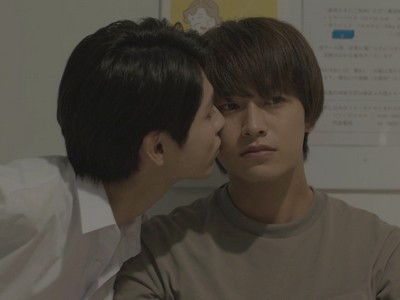
A new complication arises starting in Episode 6. Koichi suffers a transparency issue, so most people do not see him anymore. He appears invisible to those unfamiliar with him. For some, they observe a faint outline of his image. The problem worsens until only his closest acquaintances notice Koichi's presence. To everyone else, he has faded away. Koichi takes advantage of this condition to kiss his boyfriend in public. Yet, it's a troubling issue that signifies Koichi's extinction.
Koichi's transparency is a clever metaphor for memory. The characters already explain this concept in the series, so I'll just reiterate what they say. When someone dies, their death is a fresh memory in our minds during the immediate aftermath. Over time, people will start to forget about the deceased, especially if they don't have a strong relationship. Eventually, only the loved ones may continue to think about their bereavement in the long term. Everyone else won't notice the loss anymore. Like Koichi, a departed person's existence fades from visibility until it disappears altogether.
Mitsuru is agitated when people don't notice Koichi. His boyfriend's death is a significant trauma for Mitsuru, making a lasting impression. Yet, everyone else has already forgotten and moved on so soon. Mitsuru never experiences transparency issues with Koichi, whose image always remains noticeable. In fact, he helps others like Dr. Kasumi see a hazy Koichi clearly. Mitsuru mourns his lover so intensely that he evokes other people's memories. They can suddenly view Koichi because Mitsuru's grief triggers their recollections and reminds them of the past.
Mourning
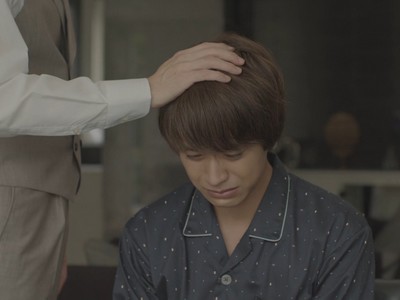
Time is up. Koichi will die. Kagamiya arrives at Mitsuru's home to deliver the bad news, like a teenage Grim Reaper. She confirms Koichi has reached his physical limitations and won't survive much longer. In fact, it's a miracle he defied nature and rose from the dead, but the universe said no more. Kagamiya also explains Koichi only sustained because of Mitsuru's emotions. Mitsuru preserves his dead boyfriend's existence by wanting him to remain in this world so fiercely.
Kagamiya's theory is highly abstract, but it symbolizes mourning. In real life, Koichi doesn't resurrect from the dead after his accident. However, Mitsuru would mourn his boyfriend by thinking of him, feeling sorrowful, and reminiscing about their memories. These experiences come with powerful emotions. Figuratively, you preserve a dead person's existence in the living world by always mourning for them. If your thoughts are constantly preoccupied with your dead ex, it's almost like he still remains with you. That's how Mitsuru keeps Koichi alive with his passion and devotion.
However, there's a danger to excessive mourning. You're stuck in the past instead of progressing to the future. The story describes Koichi's death metaphorically: "Time has stopped in the space around him." A dead person will never be a part of the future. If you linger on someone's death, you refuse to move on. You also reject reality. Your loved one is gone, yet you pretend otherwise. While you can keep up this illusion, it's a lonely and delusional experience. Kagamiya warns, "You cut off your ties from the living world. It's no different from being dead while technically alive."
Yesterday
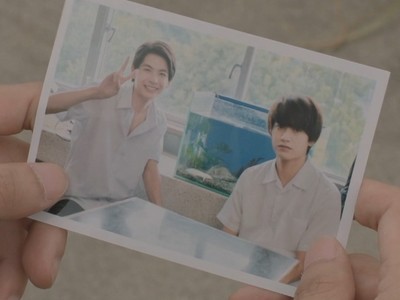
Loss is tough to endure, especially when it's as unexpected as a car accident. A loved one who is supposed to be in your future suddenly becomes a part of the past. In Episode 7, Mitsuru delivers a poignant line, "I made a wish everything would continue to be just like yesterday." He expresses a sentiment that must've crossed many people's minds after losing a significant other. You want to return to a blissful time when your beloved is still alive.
The concept of "eternal yesterday" describes the inability to move on after trauma. For some people, the devastating death of a loved one paralyzes them in time forever. The future looks bleak and undesirable without their favourite companion. Instead, they prefer to linger in the past, seeking comfort in old memories and familiar surroundings. Their thoughts are preoccupied with the deceased instead of building new connections with alive acquaintances. They willingly choose to stay in the protective bubble of eternal yesterday. It shields them from present reality.
As Mitsuru discovers, it's hard to cope with the grief of Koichi's loss. Mitsuru can't forget about his tragic teen romance. In fact, he wants to keep remembering Koichi for the rest of his life. The world may have moved on, but not Mitsuru. He wishes to preserve the past. Another interpretation of "eternal yesterday" is you honour the dead by keeping their memories alive. Your loved one may be gone from existence, but their impact shall remain for the rest of your life. These experiences stay with you for an eternity, carrying a part of yesterday into today and tomorrow.
Tomorrow
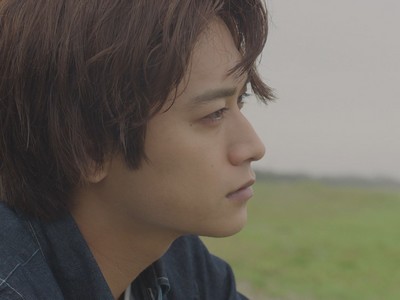
Eternal Yesterday is not a story about overcoming grief and loss. In fact, the series suggests you may never heal from the wounds of losing your number one. When Mitsuru asks for guidance after Koichi's death, his father advises, "Don't force yourself to get over it." Characters like Mitsuru and Tamaki still can't forget their old lovers in five years, twenty years, or possibly forever. An eternity may sound like a long time to mourn someone, but that's the power of prevailing devotion.
The death of a loved one may leave an everlasting impact. However, that doesn't mean you must resign to a lifetime of solitude. As Koichi suggests, it is possible to find another number one. Mitsuru's father is a success story. After losing his wife to illness, Dr. Oumi doesn't remarry for many years. Eventually, he falls in love with Kasumi, opening his heart to another partner. Yet, he still thinks fondly of his wife, who remains in his memories. Dr. Oumi navigates tragedy without sacrificing his happiness. Perhaps his son can reach the same stage of enlightenment.
Life continues after a loved one's death. Each person has a different experience with bereavement, so some journeys take longer than others. Years later, Mitsuru still grieves for his ex. "My sadness never went away, and it probably never will." Sorrow occupies his heart forever, but this subdued emotion doesn't consume him. Mitsuru goes to school, builds a career, and advances his life. He moves forward while coping with trauma. Although he carries the pain of yesterday, Mitsuru works towards a promising tomorrow that would make Koichi proud.
Eternal Yesterday Ending
Ending
Koichi
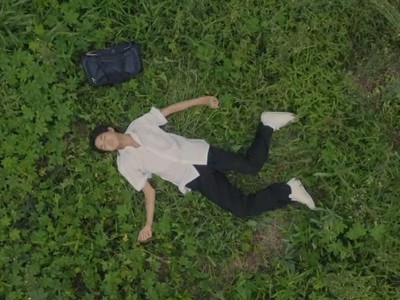
Death has come for Koichi. His demise in the finale is heartbreaking, but we know it was coming for quite some time. The character's doom was spelled out to us in the first minute of the series. He got killed by a speeding truck, instantly dying on the spot. Koichi was not supposed to survive that accident. Yet, he revived from the dead against the odds. Koichi received the divine gift of a second chance, even though it was only temporary. God took mercy on Koichi and said, "Let's bring him back to life. But not for long."
Although Koichi gets a few extra days of bonus life, they are not enough. This teenager deserves many years more. He dies without the opportunity to grow up, enjoy milestones, or fulfill his dreams. Despite the resurrection, Koichi's death is still a grave injustice. He should have been outraged and devastated by the tragedy. Fate was cruel to Koichi, denying him a fair chance to lead a complete life. Yet, Koichi comes to terms with his destiny, passing away restfully. He doesn't depart as an angry or bitter spirit. Instead, he is at peace.
The miracle in Eternal Yesterday is that Koichi dies with a sense of fulfillment. Against hopeless tragedy, Koichi attains happiness with his beloved companion. Mitsuru brings him comfort, affection, and tenderness. Koichi experiences his boyfriend's reciprocated love and thinks, "At least I leave this world having found my number one." Mitsuru adds meaning to Koichi's short life with a personal milestone. Koichi has achieved an epic romance despite his early demise. Mitsuru creates a miracle for his boyfriend, who dies feeling cherished and celebrated.
Mitsuru
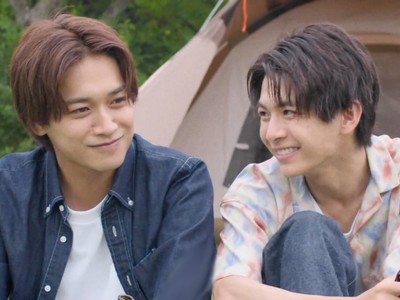
Despite his departure, Koichi leaves behind a miracle in the living world. Koichi has singlehandedly inspired Mitsuru's positive transformation, introducing him to love and emotion. Before they met, Mitsuru was cold, lonely, and reserved. He had no friends, hated his family, and never expressed his feelings. Koichi ignited a passionate fire inside him. Koichi's warmth defrosted Mitsuru's chilly demeanour, encouraging him to be more expressive and vulnerable.
After his death, Koichi's warmth remains inside Mitsuru. Thankfully, Mitsuru doesn't return to his old ways. He is still reserved, but you may notice a few signs of his character's improvements:
Mitsuru keeps in touch with his high school friends after graduation. They call and check in on him, indicating a decent relationship. Koichi was responsible for helping his companion form these connections. Koichi eased Mitsuru into his social circle in school. Now, Mitsuru keeps these friends with him for life.
Mitsuru mends the broken relationship with his father. Koichi had expressed positive affirmations about Dr. Oumi, subtly nudging his boyfriend to stop antagonizing his dad. In the finale, Mitsuru has an intimate family chat, a breakthrough in their parent-child relationship. Five years later, Mitsuru is cozy enough to refer to Kasumi by her first name Haruka. Mitsuru accepts his father's mistress as part of the family, showing compromise.
Mitsuru is now a medical student studying to become a doctor. Koichi encouraged him to pursue this job during their chat in Episode 2. Mitsuru didn't seem enthusiastic at the time. He also had a lousy perception of the hospital system. Yet, Koichi's advice may have influenced Mitsuru to follow this career path.
Even though he is gone, Koichi's impact remains on Mitsuru for the rest of his life. Mitsuru wouldn't be the man he is today without his boyfriend's sensitivity, encouragement, and gentle guidance. Miraculously, a part of Koichi lives on forever. You can find his essence in Micchan, influencing the best aspects of him.
Eternal Yesterday Episodes
Episode Guide
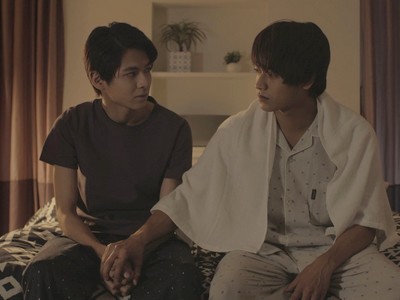
- Start Date October 21, 2022
- End Date December 9, 2022
- Episodes 8 episodes
- Episode Length 24 minutes
Eternal Yesterday has a total of 8 episodes. Each episode is around 24 minutes long. It is a medium-length BL drama, and you can finish the entire series in around 3 hours. Eternal Yesterday started on October 21, 2022 and ended its last episode on December 9, 2022.
Episode 1
Episode 1 Summary
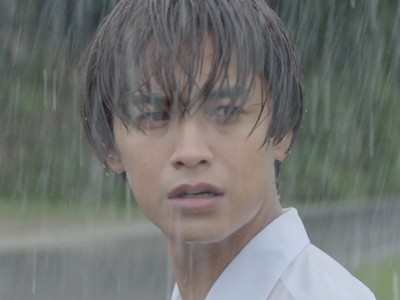
Eternal Yesterday begins on a rainy morning. Mitsuru and Koichi are high school classmates walking to school along the road. As they chat casually, a speeding truck drives past them. Koichi instinctively pushes his companion out of the way. Mitsuru is confused when he turns around and doesn't see Koichi beside him anymore. Only an umbrella remains, flying in mid-air. This ominous introduction implies a terrible car accident has occurred.
The story jumps to two years ago, before Mitsuru and Koichi met. It was another rainy day, and both teenagers stood outside the school entrance. Mitsuru glances over at Koichi and his group of friends. As Koichi returns the gaze, they stare ambiguously at each other. They grow self-conscious before looking away. Two weeks later, Koichi initiates a chat with Mitsuru. Koichi asks if they could be friends. Despite initial awkwardness, a close bond develops. Koichi's warm personality brings the quiet Mitsuru out of his shell. Mitsuru goes from being a loner to socializing in class.
Mitsuru begins mentoring Koichi. They spend time outside school and visit each other's homes. Mitsuru feels welcomed by Koichi's family, including his two younger siblings. At school, a bully tries to pick on Mitsuru, but Koichi protects his friend. The story returns to the present timeline. We see the roadside accident play out in full. Although Koichi pushes his companion out of the way, he gets hit by the truck instead. Soon, Mitsuru discovers Koichi's lifeless body lying in a grass field. The episode ends with Mitsuru stating, "In the blink of an eye, Koichi became a corpse."
Episode 1 Review
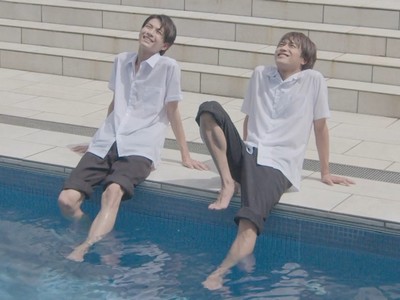
I love the Eternal Yesterday theme song, Sunshower (by Ayumu Imazu). As soon as I hear it, my emotions immediately ignite for the rest of the episode. While they aren't the same, this melody reminds me of gospel music. The power rhythms, soulful voice, and impassioned symphony evoke a celestial vibe. In addition, I love the accompanying visuals. My favourite shot is when Koichi smiles as he lifts the spraying hose. There's such warmth and sincerity in his smile, perfectly capturing the essence of his personality.
Months ago, I watched another drama called The 8.2 Second Rule, where Mitsuru's performer (Sora Inoue) featured in the second episode. Sora made an impression on me, and I remember thinking I wanted to see him star in a proper BL series. Later, I watched Takara-kun & Amagi-kun, where Koichi's actor (Rio Komiya) caught my eye. Once again, I wished for him to get a leading role. Imagine my surprise when both appeared in Eternal Yesterday. Despite having no influence over the casting, seeing them made me giddy. I was like, oh my god, manifestation works! 🙏🏻
I love the scene of Koichi and Mitsuru's first encounter, where they exchange glances at the school entrance. That scene is masterful because it establishes the attraction between the leads without needing dialogue. The actors' expressions, accompanied by the cinematic visuals and soothing soundtrack, create this romantic atmosphere. As they meet eyes, we hear the quiet sound of raindrops in the background. I can sense their love developing!
Also, I love how the finale includes a flashback of their first encounter from Koichi's POV. Mitsuru's scary face is hilariously different from his dreamy appearance in the premiere. The discrepancy reminds me of perception vs reality. The first shot is how Mitsuru thinks he looks, and the second is how Koichi actually regards him. 😆

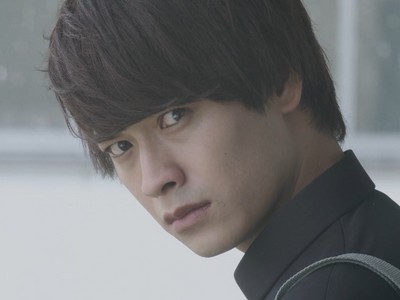
Episode 2
Episode 2 Summary
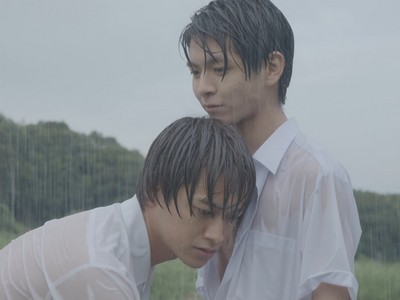
Episode 2 begins immediately after the car accident. The truck driver panics and goes to call an ambulance. Meanwhile, Mitsuru is devastated as he kneels over Koichi's body on the ground. He's shocked when Koichi suddenly awakens despite incurring traumatic injuries. Although Koichi spits out blood and dislocates his body parts, he claims not to feel any pain. After a few stretches, he seems to be fine and dandy again. Mitsuru is in disbelief as he examines Koichi's body, which lacks a pulse or a heartbeat.
Mitsuru determines Koichi has died after the accident. Yet, his companion defies nature and remains conscious, like a living corpse. Mitsuru is against bringing Koichi to a hospital where the medical experts will treat him like an abnormal specimen. Instead, they flee the scene before the ambulance arrives. At school, Mitsuru explains Koichi's condition to their friends. Despite their confusion and fear, they are supportive. The rest of the class learns about Koichi's undead status and agrees to maintain discretion. They joke Koichi is like a zombie, citing his lack of appetite.
Mitsuru is worried about Koichi's physical decay. He secretly meets with Kasumi, a married doctor who has an affair with his father. Mitsuru blackmails her into treating Koichi's injuries. Although Kasumi agrees to discretion, she is baffled and has no scientific explanation for Koichi's condition. She finishes the examination by asking, "Aren't you scared of him?" Despite the biological anomaly, Mitsuru isn't afraid of Koichi. The episode ends with Mitsuru reminiscing about the past. He remarks Koichi only made him scared once during their time together.
Episode 2 Review
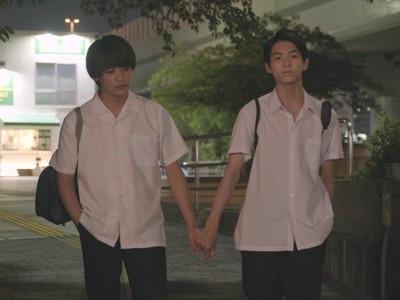
I love the twist of Koichi coming back to life. It adds complexity to the themes than just a straightforward story about Koichi grieving over his dead boyfriend. Even though the scenario is sad and scary, I like how Eternal Yesterday portrayed Koichi's revival quirkily. A dead corpse resurrecting sounds like the plot of a horror movie, yet this series depicts it as a whimsical fantasy. This breezy tone is suitable, putting a lighthearted spin on the outrageous events.
When Eternal Yesterday began, we assumed Koichi and Mitsuru were just friends. The story doesn't imply their bond is anything more than platonic. This episode starts dropping hints about the true nature of their relationship. I was intrigued when they held hands until the next episode clarified they were already dating. Suddenly, the series becomes even more heartbreaking than my initial expectations. Mitsuru doesn't just watch his best friend die. That corpse is actually his boyfriend!
Episode 3
Episode 3 Summary
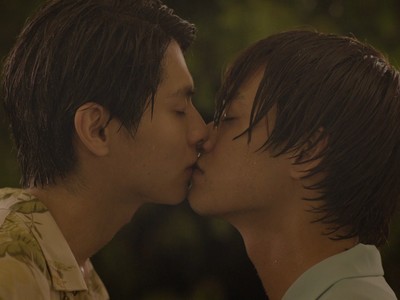
Episode 3 begins with a flashback before the car accident. Mitsuru and Koichi are going on a camping trip, which starts with a fun day by the sea. Koichi is bubbly and enthusiastic throughout the day, doing his best to create excitement. However, Mitsuru seems sullen as he reflects on his repressed attraction for his best friend. He suspects Koichi will reject any love confession. Mitsuru reflects solemnly about his sexuality. As he stares at Koichi frolic in the sea, Mitsuru states he feels incredibly depressed.
The leads arrive at the campsite. Mitsuru is cheerful and looks forward to a hearty barbecue meal. Unfortunately, the rain ruins their outdoor dinner plans, forcing them to eat cup noodles inside a tent. Koichi apologizes for the weather. Preoccupied with his anxieties, Mitsuru brushes off his friend's apologies. Koichi interprets Mitsuru's moodiness as dissatisfaction. He grumbles about forcing this camping trip to happen. Koichi claims their bonding time always feels one-sided, as if Mitsuru doesn't enjoy their activities together.
An emotional Koichi raises his voice, unloading all his frustrations. To his surprise, the normally stoic Mitsuru begins to cry. Koichi chases after him and apologizes. Mitsuru expresses how much he cherishes Koichi's companionship. "You're special to me," he admits tearfully. "You're my number one." Koichi says he feels the same way. The mood lifts between the two teens, who approach each other and share their first kiss. The episode ends with Mitsuru's introspection. Koichi scared him that day, but not because of the yelling. Mitsuru was afraid of making Koichi upset.
Episode 3 Review
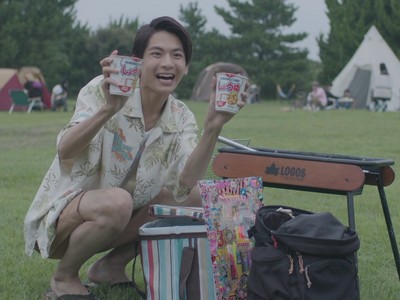
Early in the episode, there's a scene where Koichi describes the food he brought on the camping trip. That moment is such a brilliant display of his charisma. The actual exchange is trivial since he's just listing out ingredients. Despite the mundaneness, the actor's enthusiastic delivery turns each line into a charming spectacle. As the character smiles and gushes over these items, he exudes genuine warmth.
Mitsuru's inner monologue on the beach is exquisite. I have enjoyed Eternal Yesterday thus far, but this scene is the defining moment that makes me passionate about the series. Mitsuru's complicated emotions resonate with me powerfully. I can relate to his torment as he pines over Koichi. The complex internal struggle between his attraction and anguish is elegantly conveyed. We see the visual of Koichi frolicking happily in the sea, yet it overlaps with Mitsuru's devastating speech about his insecurities. How can someone this happy and beautiful make you feel so sad and ugly?
That intense confrontation inside the tent is captivating! Koichi's angry outburst is so distressing, unlike his usual cheerful persona. The actor delivers such powerful emotions, making me feel every ounce of his frustration. Likewise, Mitsuru's tears move me as well. It's such a vulnerable response from this cold, unemotional character. I feel sorrowful and sympathetic for both leads. I just want them to kiss and make up, which they thankfully do at the end. Gosh, what a beautiful ending to a phenomenal episode~ 🥲
Episode 4
Episode 4 Summary
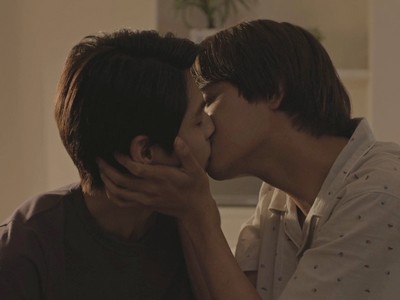
It has been 24 hours since Koichi became a living corpse. Koichi doesn't want his family to know about his condition, so he spends the night at Mitsuru's home. They arrive at school the next morning and meet Kagamiya, known for her psychic abilities. Kagamiya explains Koichi is an oni, so her magical spells can paralyze his spirit. Her folklore history seems hazy, and she's uncertain whether Koichi would eat humans. Koichi argues he would never resort to cannibalism.
Kagamiya claims Koichi needs to leech human lifeforce to sustain his energy. Feeling suspicious, she asks if her classmates did anything special together yesterday. An embarrassed Koichi denies it vehemently. In a flashback, Mitsuru confirms they had intimate relations. Last night, the teens chatted about Mitsuru's strict mother, who passed away. He regretted bringing up the topic, which reminded Koichi of his mortality. Koichi felt self-conscious about being a zombie and described himself as creepy. Mitsuru kissed his boyfriend to refute those claims.
Koichi embraced his boyfriend affectionately. As they got touchy-feely, Koichi was surprised by his penile reaction, proving he still had signs of vitality. Their sexual foreplay became friskier. Koichi nibbled on Mitsuru's earlobes before proceeding with a handjob. In the present timeline, Kagamiya reiterates that Koichi needs to drain human energy to survive. She trails off with an ominous statement about Koichi running out of time. The episode ends with the class president announcing Kogawa, their homeroom teacher, is contemplating suicide on the rooftop.
Episode 4 Review
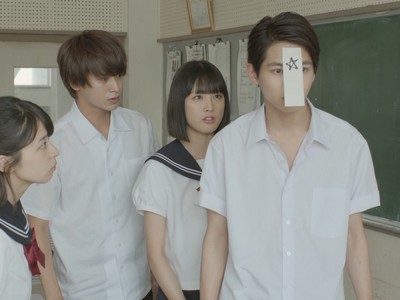
Koichi doesn't care about his classmates discovering his death, yet he freaks out when they think he's doing gay stuff with his boyfriend. You'd think resurrecting from the dead is a more scandalous secret than a bit of hanky panky. Yet, his biggest insecurity comes from people suspecting he got to third base with another guy. No, they mustn't know how I used my hands last night! 😱
Even though I love the creative story in Eternal Yesterday, the outlandish circumstances make me giggle. Who thinks it's hilarious that gay sex provides the life force to keep Koichi alive? I go along with this wacky plot of a dead guy returning to life, and the only way he survives is by sexually pleasuring his boyfriend. Kagamiya kills me when she says, "Ooh, Yamada must be absorbing some kind of energy!" Why does it sound like she's using a polite euphemism to imply Koichi sucks dick? 🙊
My favourite moment is when Mitsuru and Kagamiya have a highly intellectual conversation in the classroom. As they throw around abstract concepts, poor Koichi pretends to understand these complex ideas. His befuddled expression is adorable. Yet, Koichi won't ask for clarification because he's insecure about being the dummy in the group. Koichi only admits he's confused after Hashimoto goes *wtf are you all talking about*. He must be relieved that someone else can't keep up with this discussion lol.
LMAO at the entire sex scene in this episode. It began with a sentimental conversation between the leads, which turned erotic midway. A minute ago, I was tearing up over Koichi's existential crisis. Suddenly, I'm laughing my ass off at his over-the-top raunchy lines. "I'm feeling hot! I'm at my limit, Micchan!" Then, he starts nibbling on Mitsuru's earlobe! Maybe because Kagamiya mentioned eating bodies earlier, but I feared Koichi might bite off Mitsuru's ear during this sexual encounter. I was simultaneously scared, aroused, and entertained by this hilarious scene.
Episode 5
Episode 5 Summary
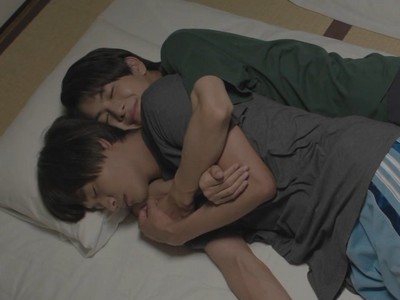
Koichi and Mitsuru's teacher, Kogawa, stands on the school rooftop and prepares to jump to his death. It's early morning, so only a few students notice the commotion and gather around him. Another teacher, Tamaki, is in attendance. A quick flashback reveals that he was dating Kogawa. However, Tamaki dumped his boyfriend recently. The breakup distresses Kogawa, causing him to become suicidal.
Koichi reveals his undead status to distract his teacher, convincing him to step away from the ledge. At the opportune moment, Koichi uses his powers to drain Kogawa's life force. Kogawa falls unconscious and doesn't pose a threat to himself anymore. Despite the heroic rescue, Mitsuru feels troubled by Koichi's vague remark. Koichi claims his time is running out, but Mitsuru doesn't ask for clarification because he dreads the response.
The leads arrive at Koichi's home. Koichi's mom, who is pregnant with another child, greets them warmly. She's clueless about his condition. Koichi makes an excuse to eat nothing at dinner. After the meal, the teens drink sodas. Koichi takes a sip before putting down the bottle solemnly. Mitsuru feels for a heartbeat again, but Koichi knows his body won't produce a response. Mitsuru grows saddened. Koichi snuggles up to his boyfriend and embraces him tightly, commenting on his warmth. Mitsuru narrates, "It hurt a bit, but it made me happy since I could still feel Koichi."
Episode 5 Review
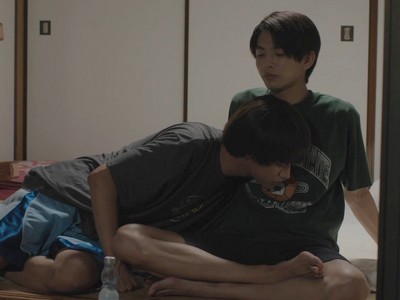
I'm constantly in awe of how intelligent and sophisticated this story is. Each episode embeds subtle symbolism that ties to the narrative themes. My favourite metaphor is the concept of warmth and coldness, representing each character's mental state. Last episode, Koichi's body felt cold because he doubted his humanity. Mitsuru kissed him and provided warmth. In this episode, Mitsuru describes his personality as cold & introverted. Koichi hugs him reassuringly, reciprocating the gesture from last night. "You're warm, Micchan." 🥺
After his death, Koichi loses many experiences we take for granted, such as his sense of taste. He can't eat or drink normally anymore. Koichi used to enjoy these big homemade lunches crafted with love. Now, it crushes me he'll never try his mom's cooking again. Poor Koichi can't even taste a soda anymore. He looked sad after taking a sip, reminding him of all his missing pleasures. The story drops understated cues that highlight Koichi's losses, triggering the viewers' sympathy.
I love the heartwarming scenes with Koichi's family. He interacts with his siblings adorably. These exchanges highlight his character's warmth and enthusiasm, even though he's masking his sadness for his family. The loving home environment explains a lot about Koichi's personality. Initially, I noticed the age difference between the siblings. I was also surprised to see Koichi's mom pregnant with her fourth child. However, the story reveals a twist in the final episode about Koichi's adoption. Now, the unusual aspects of his family structure make sense.
"It made me happy since I could still feel Koichi." STOP ENDING THE EPISODE WITH THESE DEVASTATING LINES! OMG I'M SOBBING!!! 😭😭😭
Episode 6
Episode 6 Summary
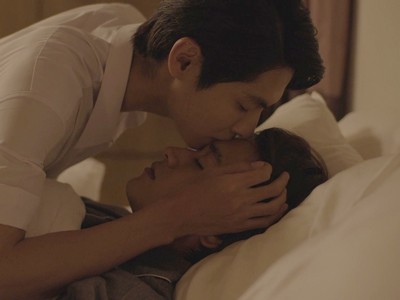
Episode 6 begins on a new school day. Surprisingly, a classmate talks to Mitsuru without acknowledging Koichi is beside him. Koichi reveals a recent trend of people not being able to see him. He is becoming invisible to those who have weaker bonds with him. This phenomenon is similar to how memories of the deceased fade over time. After your death, you're slowly forgotten by everyone. Mitsuru is upset after learning about this latest setback. Tamaki, the biology teacher, overhears the teens and joins their conversation.
Tamaki thanks Koichi for saving Kogawa's life last episode. He explains his rationale for the breakup. Tamaki didn't view Kogawa as his number one. Instead, he still grieves for his ex-boyfriend, who passed away twenty years ago. Mitsuru saddens because he sees the resemblance to his relationship with Koichi. However, Koji proposes there can be a tie. He suggests Tamaki can have two number ones and love both partners equally. Mitsuru disagrees with the notion and believes only a single person can be number one.
The leads arrive at the hospital. Kasumi has trouble seeing Koichi due to his transparency. However, his image becomes more vivid around Mitsuru's presence. After the check-up, the teens encounter the truck driver who killed Koichi. The frazzled man feels guilty about the accident. He was speeding that day to visit his hospitalized mother. Mitsuru is furious, but Koichi talks his boyfriend out of confronting the killer. Mitsuru's wrath turns into despair as he breaks down in tears. Koichi hugs him. The episode ends with Koichi caring for Mitsuru, who has fallen ill with a fever.
Episode 6 Review
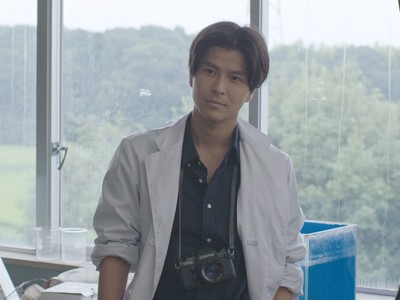
Every time Koichi calls Mitsuru by his nickname Micchan, I get emotionally weak lol. I love the way he speaks his boyfriend's pet name so affectionately. His voice and those words create an inexplicable effect on me, making my heart melt into a puddle.
I had a ~hot for teacher~ moment after seeing Tamaki in that lab coat and collared shirt. He looks so sharp in this wardrobe! I wanna be caught up in an eternal romance with Tamaki-sensei. 🤤 Before, I didn't like Tamaki's character, but his sympathetic storyline in this episode changed my mind. I appreciate the parallels between the protagonists and the teachers. The supporting characters echo the central narrative themes.
Using Koichi's transparency to symbolize other people's memories of him is brilliant. As the characters explain the concept, the sophistication of this motif blows my mind. Not only is it creative, but this subplot is heartbreaking as Koichi fades away in relevance. Whenever I watch other BL dramas, I must cross my fingers, hoping for one coherent storyline. Meanwhile, Eternal Yesterday delivers numerous innovative plots, complex metaphors, and philosophical ideas. It astonishes me how this profound story is in a completely different class than most BL series.
Episode 7
Episode 7 Summary
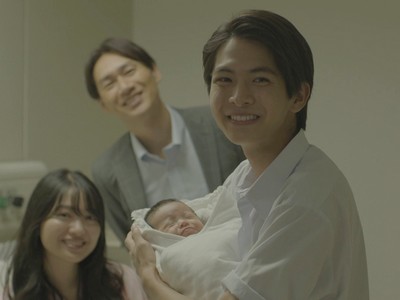
In Episode 7, Mitsuru skips school due to his fever. He makes Koichi attend so the other students wouldn't forget him. Mitsuru's illness subsides, but he feels lonely without his companion. Surprisingly, Kagamiya visits him at his home. She mentions how nearly the entire class can't see Koichi anymore as his transparency worsens. Koichi left school during the day without informing Mitsuru. He has gone missing, not answering any of Mitsuru's calls.
Kagamiya realizes Koichi isn't an oni. She thinks he has only sustained because of Mitsuru's overpowering emotions for him. Without Mitsuru nearby, Koichi has no energy to remain in the living realm. Kagamiya warns that Koichi has reached his limit. It's already a miracle he survived this long. In theory, Mitsuru's enduring love for Koichi can preserve his existence. However, it would require Mitsuru to isolate from the world and devote himself entirely to Koichi's spirit. Kagamiya describes the situation, "It would be no different from being dead while technically alive."
Mitsuru finally locates Koichi at the hospital's maternity ward. He rests here because the life force from newborn babies comforts him. Surprisingly, they encounter Koichi's family. His mom is about to give birth. After the successful delivery, Koichi feels delighted to hold his baby sister. He gets to enjoy a heartwarming moment with his entire family. However, Koichi knows his body won't persist for much longer. The episode ends with the leads leaving the hospital to go home for the night. Mitsuru tells his boyfriend earnestly, "Yeah, but be ready. We're gonna do it."
Episode 7 Review
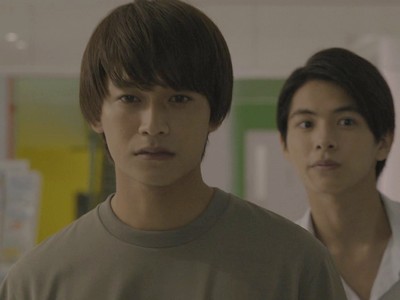
I love that chat between Mitsuru and Kagamiya. It took me a rewatch to grasp the abstract concepts in their discussion. (The first time, I was confused like Koichi and pretended to understand.) After the ideas about mourning and bereavement sank in, this sensitive exchange felt so moving. Also, I really like how Mitsuru's eyes are filled with vivid emotions. There's an intensity to this actor's gaze that amplifies the dramatic moments.
I'm glad Koichi spends one last time with his family. At least he gets to meet his adorable baby sister, even though she'll never know her cool older brother. I'm also happy Koichi's mom didn't have to discover her son's death while pregnant. Oh my god, can you imagine? This hospital scene is both heartwarming and heartbreaking. Here they are, celebrating a precious moment together. Little do Koichi's parents and siblings know the tragedy that lies ahead. The next time they have a family reunion, it will be at the morgue. 😢
"Yeah, but be ready. We're gonna do it." LMAO. I assumed Mitsuru would end this emotional episode with a deep, meaningful message. Instead, he blurts out a random sexual proposition that makes me laugh. What gets to me is how Mitsuru has this serious expression, yet he says the silliest line in the entire series. As tragic as the story may be, Eternal Yesterday also cracks me up sometimes.
Episode 8
Sad Ending
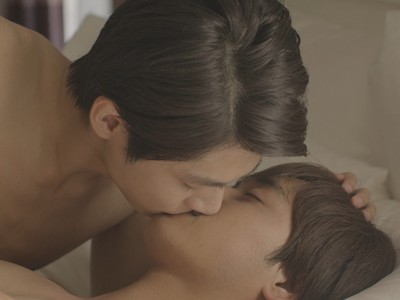
Eternal Yesterday has a sad ending where Koichi dies and leaves the living world forever. After a miraculous resurrection, his mortality has reached its limits. Koichi spends his final moments with Mitsuru as the couple consummates their love. They are nervous initially. Both admit it's their first time having sex. After getting undressed, Koichi embraces Mitsuru and whispers, "I love you." However, the mood is sombre. Faced with imminent doom, Koichi begins crying about his tragic fate.
Mitsuru draws his face nearer and comforts his dying boyfriend. Mitsuru reassures Koichi that he'll never be forgotten. Koichi will always remain his number one. They kiss and make love on their last evening together. On the following day, Koichi brings himself to the same grassy field where the accident occurred. His lifeless body was found there, ruled as a natural death. Afterwards, Mitsuru chats with his dad. His father knows about Koichi's condition. In fact, Mitsuru's mom was also a living corpse for a while. Mitsuru's dad consoles his weeping son as he succumbs to grief.
The story jumps to five years later, and Mitsuru is now a medical student. Mitsuru visits the same campsite where he confessed his love to Koichi. Later, he sits by the sea and stares at a picture of his boyfriend. It reminds him of when Koichi said you can have a tie for two number ones. Yet, Mitsuru reveals he hasn't found anybody else, "There's still no one I love more." In the final scene, the plot switches to Koichi's point of view. Koichi describes how he fell in love with Mitsuru. He expresses his gratitude toward their romance. "Mitchan, thank you for this miracle."
Ending Review
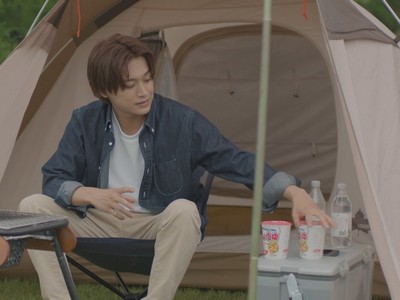
Noooo! Don't die, Koichi! 😭 Seeing Koichi embrace Mitsuru and break down in tears is so devastating. Despite anticipating his death, I still don't feel emotionally ready to see him depart the world. I've grown super attached to both protagonists in just eight short episodes. I was rooting for them to defy the impossible odds and find a way for their human-zombie romance to work. Someone build a ~hyperbolic time chamber~ and preserve these two lovers forever!
Did you notice Mitsuru bringing the two cup noodles and water bottles on the camping trip? One for himself, and one for Koichi. Even though his boyfriend isn't here anymore, Mitsuru still brings two of everything as if it's a couple's getaway. The noodles and bottles are the defining symbols of Episode 3 when the characters confess their love. I like how Eternal Yesterday pays attention to the small details and references the past.
A photograph is a fitting symbol of eternal yesterday, like a frozen time capsule of the past. How appropriate that Tamaki gives Koichi's picture to Mitsuru. Tamaki's trauma is very similar to what Mitsuru experiences, so there's a kinship between them. It feels sad and lonely that their characters never find another number one in the future. However, I respect their choice to remain devoted to their romantic partners. The eternity of their passion is what makes this love story so poignant and powerful.
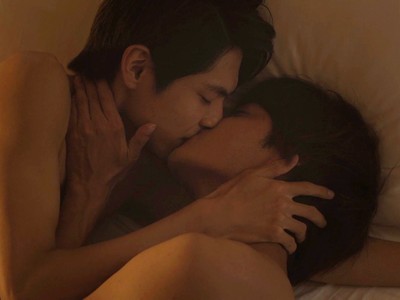
I enjoy hearing Koichi's point of view in the last few minutes. That's a great storytelling device to end the series, giving us quick insights into his character. It makes me wish Eternal Yesterday would release a sequel dedicated to Koichi's POV, like a movie or a special episode. I'd love to hear his thoughts on various events. The story can flesh out the romance even more. There's a missing narrative gap when the leads start dating, so I want more development. Earlier, Koichi mentioned about going to karaoke with Mitsuru. I wanna see it!
What are the chances of Eternal Yesterday getting a sequel? Is it low? If My Beautiful Man and Pornographer can have movies, this brilliant drama should be able to qualify for one too. I don't even need a full-length film. Give me a well-written special episode conveying the story from Koichi's point of view. I'd be satisfied with twenty minutes of cute romantic fluff portraying Koichi and Mitsuru's relationship before the accident. Please make it happen, BL gods! I'll be using my manifestation powers to wish for more Eternal Yesterday content. 🔮
Eternal Yesterday Information
Links
- Gagaoolala Eternal Yesterday Gagaoolala
- MyDramaList Eternal Yesterday MyDramaList
- Viki Eternal Yesterday Viki
- Website Eternal Yesterday website
- Wikipedia 永遠の昨日 Wikipedia
Tunku

Tunku (トゥンク) is a Japanese BL studio. It began a project called Tunku Shower in 2022, which releases numerous BL dramas on the Japanese channel MBS. Tunku has made Mr. Unlucky Has No Choice But to Kiss (2022), Senpai, This Can't Be Love (2022), and Takara-kun & Amagi-kun (2022). It also created Eternal Yesterday (2022), Candy Color Paradox (2022), Jack Frost (2023), Tokyo in April is… (2023), and My Personal Weatherman (2023).
Author
Eda Yuuri (榎田ユウリ) is a Japanese author. She is the original creator of Eternal Yesterday, which was published in 2002. In 2022, the story was adapted into a live-action drama. Eda has a long-established career of writing BL stories.
Director
Kobayashi Keiichi (小林啓一) is a Japanese director. He worked on the 2022 drama, Eternal Yesterday. The series is sometimes known as Eien no Kino.
Cast Messages
After the finale, the lead actors who portray Koichi (Rio Komiya) and Mitsuru (Sora Inoue) have posted their thoughts on Instagram and Twitter.
I completely agree with everything you have said. A+++. I watched the ending of Episode 8 multiple times and am always moved to tears. I am intrigued by the closing credit video, and I would love to ask the director what message he is trying to portray. Near the end of Episode 8, Mitsuru is camping at the beach five years later. He says, “In the end, my sadness never went away… and it probably never will. I still keep looking for him…. I still haven’t found another number one, Koichi. There’s still no one…I love more.”
The highly pixilated video of the closing credits shows Mitsuru dressed in the same clothes and with the same hairstyle at the same beach campsite, barbecuing with Koichi, having a great time, and drinking a beer. However, Koichi appears to have a few gray hairs. Is this meant to show Mitsuru forever lost in a vision of an Eternal Yesterday with Koichi, getting older and unable to move on? Or are the gray-looking hairs just an effect of the lighting, and this is just a happy glimpse of what it could have been?
Most BL series’ opening and closing credits usually show clips from the episodes. However, the playful clips of the opening and closing credits of Eternal Yesterday are not. This intrigues me, and I wish I could be at a Q&A with the cast to ask about this.
I’ve been waiting for your thoughts on this series and I agree with you on everything.I couldn’t stop crying when I heard koichi’s inner monologue at the ending .it’s just a beautiful series ,the first episode had me on a leash with their eye contact.
I just want to say this series touched in a way that no other BL series. From the masterful acting of our leads, and the immersive and daunting story telling that simply captivates you, this series is like know other. Just typing this review my hands are shaking think about the story of our characters. This is truly something special and I will never forget this experience. I give this series an A++++++++ and I hate sad ending dramas.
I have been waiting with bated breath for your review of this series – I am not disappointed (I might have cheered a little when I saw the A+ grading). This series is special and if I didn’t have to wait for my heart to heal I would rewatch it immediately.
I am particularly impressed with Rio Komiya. I had watched Tamaka-kun and Amagi-kun only days before starting Eternal Yesterday and I did not recognise Koichi as Tanaka AT ALL! His character transformation was so complete.
Thanks Roger, for that insight into the end credits. Really interesting theory!
The emotion of this love story will stay with me for a long time. I’m so pleased to see others loved it as much as I did.
I couldn't agree with you more. In my experience, the level of sophistication and nuance that Rio Komiya and Sora Inoue deliver in their Eternal Yesterday performances are matched only by those of the far more mature actors Tatsonari Kimura and Kouhei Takeda in Old Fashion Cupcake. Although the contexts are different, there is a similar langour and introspection in both works. While watching this series (which I will do again as soon as my heart heals) what also came to mind was the quiet surrealism of Haruki Murakami's novels. His narratives often include a supernatural element that is sublimated by both stillness and longing, as here. For me, 2022 is all about Eternal Yesterday, Old Fashion Cupcake, The Eclipse, and Semantic Error (come on, we need a laugh too).
Thank you, thank you for your insightful and beautiful review of this masterful drama! I keep watching Eternal Yesterday over and over, drowning in the melancholy, dreamy sadness, and poignant love that these two amazing actors bring to their roles. This drama needs to win many awards for its sensitive portrayal of their relationship.
For the person who commented on the closing credits, as you mentioned, they are both older and look happy and relaxed, and drinking beer (remember the open door scene when they are sitting crossed-legged drinking water and talking about how they could be drinking beer if they were older?). I wonder if this is Mitsuru's imagination of what their future could have been like, or possibly it is simply a view into an alternate / parallel universe where their story continued and they had a long and happy life together. In either scenario, it strikes the heart to see their happy, relaxed faces and to know that this future does not exist for them in this world.
I am not sure when I will be able to move past this profoundly impactful drama. I hope the author knows how much meaning and beauty she has brought to those of us who never had a hope of reading a Japanese novel published 20 years ago.
This review was beautiful. While reading this, I can't help but have tears in my eyes. The reason why this series resonates with me so well as it's simply a brilliant depiction of grief. Everything about it is just beautifully done. I probably won't be able to move on from this series for a very long time. It was just perfect.
Stunning and spot-on review. I think your review confirmed for me that it was all real and not Mitsuru’s imagination. I thought with all the people who saw Koichi no longer remembering him in that state surely meant this was entirely Mitsuru’s imagination because he was in shock and couldn’t deal with his grief.
I have had some time off for the Holidays and have had some extra time to catch up on a few BL series. This series was like a Christmas gift I wasn't expecting, but ended up being exactly what I needed! (Hope to see your reviews soon of a couple others I've been able to watch, including "My Only 12%" and "My Tooth Your Love.")
Thank you for your review and you insights! I actually watched this series (as I have done a few in the past) while reading your episode reviews right after each episode. I so appreciate the little details that you flesh out in your reviews and often they can be some profound aspects of a scene that I may not have thought about in that way. One example of this from Eternal Yesterday is in the finale when you point out "Mitsuru's scary face" in the flashback of their first encounter from Koichi's point of view and how it was completely different from the way Mitsuru saw himself when he was remembering that encounter.
This series well deserves your A+ rating!
I feel like they did what Takara-kun and Amagi-kun was trying to do character/dynamic wise. In Takara-kun and Amagi-kun, it always felt weird (at least for me) but here they compliment each other SO well.
Hi, I was reading through your review in hope that you will analyse the concept of rain in this series. I noticed that the rain is repetitively mentioned or shown, and I think it's used as some sort of a symbol in cinema writing and this pattern forms a certain motif about mitsuru or koichi being somewhat associated with the rain, but I'm not sure what.
I'm curious of what you think of this 😁
My interpretation of the rain is that it symbolizes fate. It can be good or bad, but it's something that you can't wholly avoid or predict.
Rainy weather occurs during every significant event in Koichi and Mitsuru's relationship, both positive and negative. If it wasn't for the rain, they wouldn't have met outside the school or confessed their love on the trip. The rain brought these two lovers together. Yet, the rain also drove them apart. The truck driver might see better if it was sunny and Koichi didn't have to die that day.
Rain, like destiny, is unpredictable and uncontrollable. Some people experience good luck by chance, while others encounter bad fortune accidentally. You can make some preparations, such as bringing an umbrella on rainy days, not that it helped Koichi in any way. The story tells us that we're defenceless against tragedy when it can happen at any time. Good and bad events occur in our lives, like sunny days, rainy days, or cloudy days.
Ooh loved your review. While I resonate with everything you said, I don't fully comply with the interpretation about grief and parts discussed in tomorrow.
Actually, I love how this series deeply show us the other side of grief and the minority grievers who grieve more deeply. Not many series represent them. As if they shouldn't exist. Lol. I won't think it's sad and lonely that Mitsuru decided to not finding love again but I see it as – since he is still in so much love with Koichi, he doesn't need another one. I'd say he moved on from his boyfriend's death since he is not succumbing to his sadness but never moved on from his boyfriend. I think it's completely normal and even a happy thing for him.
There are multiple ways of moving forward from a grief and I believe both Mitsuru and Dr. Oumi shows us *different* pathways. I think both are valid. If we say just one is enlightened and other is not, then indirectly we might deny the happiness Mitsuru found on his own with his great struggles. Both were thrown into a tragedy. Both grieved heavily and re-building there life with a great effort. Dr. Oumi's has a new partner in it and Mitsuru's doesn't have one. That's all. We can't appreciate one way and deny the other. For me, both grieving ways are beautiful, enlightened and perfect in it's own way.
Dr. Oumi succumbed to his sadness, never addressed his grief and drowned in work, became lonely without anyone and finally moved on and found his new love while learning to keep his past love differently in his heart. But Mitsuru or Tamaki are neither lonely for people nor lonely for a partner but when they feel alone they're specifically lonely for their one person and this cannot be fixed by having just another romantic partner. So they built other parts of life while gathering strength from memories of their partner from their past. I would rather appreciate their courage that they are building a life and living again even without their favorite person present physically in this world but keeping their relationship alive in their heart. I won't call it as *stuck in the past* without any future but moving forward in future while keeping their past as their strength and companionship. It's not sad and lonely. There are so many people who choose to be single as a life choice nowadays. Are we calling them sad and lonely? It's just a choice.
There are people who strongly believe that even when some people die their relationship with them never dies. I think Mitsuru and Tamaki will enjoy the other aspects of their life like having passionate job, personal hobbies and great friends while still being in relationship with their deceased partner. They never shut down their heart completely and that's what is important. Now asking them to be with a partner and saying it as a better way or enlightenment will only make them sad as that's not what they wanted. Like every person is different, every grief is different as well.
Maybe I'm interpreting like this with my biased view as as I've a brother who moved forward differently for which he faced with lots of unsolicited advices and branding his choices as unhealthy. He used to say, " Everyone wants their own version of happy ending from every tragedy. Even when it's not the happy the ending the griever wanted." Lol . Now he's still single but a happy one definitely. He doesn't want to hold his love differently at the same time he didn't stop to live his life as well. Some unconditional love are like that. Simple yet complicated.
So there are grief which are carried for an eternal time but along with sadness there will be love, happiness and warmth as well. I'm glad that these kind of grief are discussed now in series. Some people see grief as a thing to overcome but if we put that as a condition, we have to leave people like Mitsuru behind which is very sad. All grieving ways are healthy when it gives happiness and every grief should be understood as it is.
I love this series as it's giving me the vibe of saying it's ok that you're not ok. We are in a time and culture that grief is labeled as bad. There's my favorite Devine Megan's quote from her book about grieving: "some grief are not to be fixed but to be carried". And I see Mitsuru as a personification of a griever who grieves differently. Validating his grief as it is. Without sugar coating it.
I loved your analysis very much in every other aspect and I really wanted to share my view on this aspect of your review and how I perceived the series and grief. So for me, this series is a happy ending in a different way. your review encouraged me to finish the series as I was very skeptical about the ending at first. Thank you so much for this great insightful review. Looking for more 💜
Magical miraculous beautiful perfection. I was left repeating Koichi Mitchan Koichi Mitchan Koichi Mitchan Koichi Mitchan as a prayer for the miracle of a love so powerful that can even postpone death for a few days.
Honestly the best BL I've ever seen. I cried almost every episode. It was a slow emotional burn that made me never want to fall in love with anyone but at the same time want to spread my love everywhere. Just reading your review made me tear up again. Such a beautiful way to talk about grief. I knew a girl who died in a car accident a year ago while walking home with her fiancé so this hit extra hard.
Now(late April in 2023), "Eternal Yesterday" director's-cut version is on air in Japan. I'm going to leave a comment here when I've finished watching all the episodes.
I missed the series in 2022,but I managed to see all the episodes in the newly−edited version cut by the director
Kobayashi. I had happened to find your detailed review on `The cornered mouse dreams of cheese’,browsing for any information about BL dramas. I thought your recommendation was worth trusting.
You gave this series +A, which I know is very rare. Thank you very much for your recommendation. If I had missed it, too, I would have never known such a good drama was aired in Japan. Nobody has even referred to it!
I tried watching the first three episodes, but I didn't feel anything for this series. It's not my cup of tea, and watching it felt like a chore, so I stopped after the third episode.
Thank you so much for this wonderful review! I just watched Eternal Yesterday now in 2024, two years after its release, and found your site and this review afterwards… Your review is so on point and detailed and has helped me understand more the intricacies of the drama which I couldn't explain as vividly but made me feel unexplainable feelings. The drama was really something else, it made me feel such deep and mixed emotions which I think will stay with me for a long time (at least for as long as I remember this drama).
Prior to watching it, I had zero knowledge other than it's a sad bl and seems well liked among jbl fans. And tbh I was kinda hesitant because while I don't hate tragic stories, I sometimes can't find myself to feel so strongly about some of them compared to other viewers (in other words I was scared to be disappointed and feel like an inhuman person for not feeling sad about something that made other people cry lol).
I was also skeptical that the tragic aspect might feel forced or just be "tragic for the sake of being tragic", something like that. But I'm glad it was the opposite. Starting from ep 1 I already knew this drama was gonna destroy me, and I wasn't wrong.
Honestly one of the best J-bls I've watched so far, from the acting to the dialogue to the scenery and to the ost, everything just fits right imo. I'm really glad to have watched such a series like this.
I would also like to add because I forgot to put it on my last comment, I especially liked the non-linear approach and the use of flashbacks (esp. on eps 3 and 4), which I found as a unique and interesting experience as a viewer. Imo it made the experience feel more surreal or "fantastical" for me in way? Almost as if I was watching a modern fairy tale (not the disney princess type but the grimm brothers or hans andersen type lol) or a mythological story about an undying love that defies any sciencetific explanation of life and death.
That approach really stood out for me.
And lastly, for others who are maybe still hesitant to watch it for similar reason I had or maybe because they can't take the supernatural or tragic aspects seriously (honestly I'm also the type that when I notice plotholes or unrealistic stuff it would bother me a bit, but it was different for this drama), I would say they could be missing out on something special. Yes, it was tragic, but somehow still beautiful and really "human".
Yes, there were really crazy (and kinda confusing) supernatural stuff happening but giving it benefit of doubt and setting that aside and you will get a delicate and profound metaphor about loss and grief, not just about romantic relationships but in general. These experiences are something that we will have to face at least once in our lives, but that doesn't mean that it's only a negative thing, because as seen on the drama and this masterful review, the loss of someone special in our lives is not the end for us and it is possible to move forward to a "promising tomorrow" along with the memories we have of them.